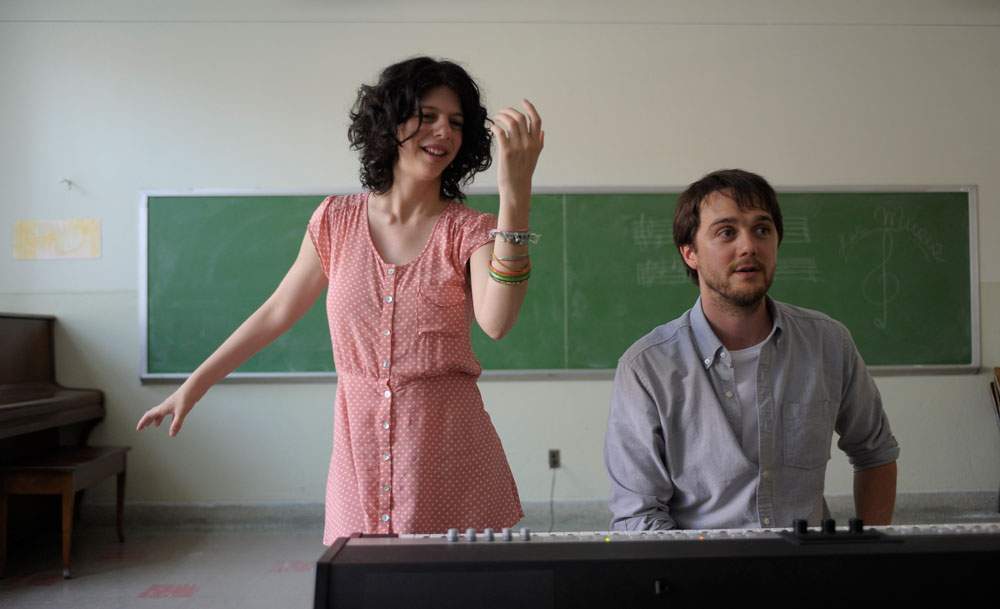Gabrielle
A nuanced and heartfelt exploration of issues rarely explored on screen.
Overview
The latest in the impressively long line of remarkable French-Canadian dramas, Louise Archambault's Gabrielle finds poignancy in an unexpected place. Produced by Luc Déry, who scored back-to-back Oscar nominations for Incendies and Monsieur Lazhar, the film follows the trials and tribulations of its titular character, a kind-hearted 22-year-old with significant developmental disabilities. Combining heartfelt storytelling with nuanced handling of issues rarely explored on screen, it's a tender, uplifting picture that marks another big win for the cinema of Quebec.
The evanescent presence at the centre of the film is Gabrielle Marion-Rivard, a first-time actress who, like her character, suffers from a rare genetic disorder called Williams syndrome. It's a condition that manifests itself in the form of learning impairment, along with a high level of sociability. From the moment we see her, Gabrielle reminds us of a primary-schooler: cheeky, gregarious and eternally curious but also fragile and incapable of real independence.
The film's naturalistic script focuses on two key relationships. The first is the connection Gabrielle shares with her elder sister, Sophie (Mélissa Désormeaux-Poulin), her protector and closest friend. The second is her romantic attachment to Martin (Alexandre Landry), a similarly challenged young man who sings with Gabrielle in a choir for the mentally disabled. They're an adorable couple, until things turn sexual, at which point Martin's protective mother abruptly pulls them apart.
Archambault tackles potentially uncomfortable subject matter with both empathy and frankness. The extent to which people in Martin and Gabrielle's situation are capable of having an adult relationship is a difficult and thought-provoking question, one that most of us have probably never considered. The film's depiction of the pair's burgeoning physical intimacy is delicate and deeply moving; you want so desperately for them to be happy, but you also completely understand the desire of Martin's mother, to protect her son from consequences he cannot understand.
Marion-Rivard seems utterly at ease in the front of the camera, bringing authenticity and charm to a truly wonderful character. Supporting her is Landry, a professional actor who is not learning disabled but never once falls into the traps that depictions of the mentally handicapped sometimes do. Perhaps the most heartbreaking performance is that of Désormeaux-Poulin as Gabrielle's sister. The love she feels for her sibling is palpable, yet with it comes a sense of responsibility. The question of how much personal happiness you can sacrifice for someone you care about is a difficult one. Yet it's something that almost everyone must at one time or another face.
It's that emotional honesty that makes Gabrielle so powerful. Archambault never condescends to her characters, nor does she indulge in mawkishness or stifling political correctness. Everybody, be they disabled or not, has their limits. But they also have potential beyond what you might assume.






